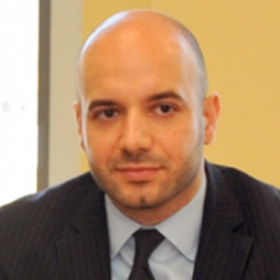
New Rules for Old Weapons
For Dan Plesch, Director of the Centre for International Studies and Diplomacy (CSID) at the School of Oriental and African Studies (SOAS) of the University of London, the next target of arms control is clear: expanding the successful European model of limiting numbers and deployment of conventional weapons.
In his recent visit to EWI, Plesch discussed his latest project, which aims to export confidence and security building measures associated with conventional weapon control in Europe to Asia, the Middle East, and Africa.
”There is a continued and growing threat to sustainable development from the uncontrolled proliferation, possession and production of major conventional armaments,” said Plesch. “There is also an increasing awareness in the international community that has risen out of the development of ongoing conventional disarmament work in the area of arms trade, landmines and small arms.”
Plesch believes that European agreements on Conventional Armed Forces in Europe (CFE) and the associated Confidence and Security Building Measures (CSBMs) and Open Skies regime provide a strong and unprecedented institutional model for a major expansion of collectively improved international security.
Plesch explained, “These agreements, though under threat, have provided the basis in security terms for a peace dividend where European publics pay a historically low level of around 1% of GDP on the military; it is regrettable that such agreements are one of the few sets of regulations that neither NATO nor the EU have exported to the East and South.”
Plesch’s project is intended to adopt a phased approach that expands over time. He identified the key participants in that process as regional and military experts, academics, government officials and civil society. The project’s aim, he added, is to help re-energize an international constituency capable of carrying through a realistic risk-based global confidence building and disarmament agenda based on applied international and development studies and public policy. It is also intended to put CSBMs and conventional weapons disarmament back on the international agenda to facilitate nuclear and other WMD disarmament.
“The project intends to build on humanitarian campaigns on specific weapons and on the Arms Trade Treaty,” Plesch said. Moderating the discussion, EWI Senior Associate Jacqueline McLaren Miller asked if the uniqueness of the European process and especially its Cold War roots, would hinder its applicability in other regions. In his response, Plesch explained that, as part of insuring the applicability of the European measures and the success of the project, CISD plans to host annual large scale international scoping workshops. It will also organize annual “Conferences on a Middle East Weapons of Mass Destruction Free Zone,” a “Common Security and a Nuclear Free Zone in the Middle East Workshop,” and conduct regional feasibility studies looking at regions such as Sudan and the Cambodian-Thai border. His team also plans to develop a non-OSCE observer inspections program, and an active education and knowledge sharing program.
As part of this effort, Plesch and SOAS have been invited by the EastWest Institute (EWI) to present a panel at the Annual Worldwide Security Conference (WSC8). The conference is a platform to reframe perceptions of international security threats and opportunities, and mobilizes experts from governments, businesses, NGOs, and academia to make practical recommendations for policy change.
Plesch also briefly discussed his new book America, Hitler, and the UN, which traces the history of the United Nations from its conceptual origins in 1942 through the defeat of the Axis powers to the present.

